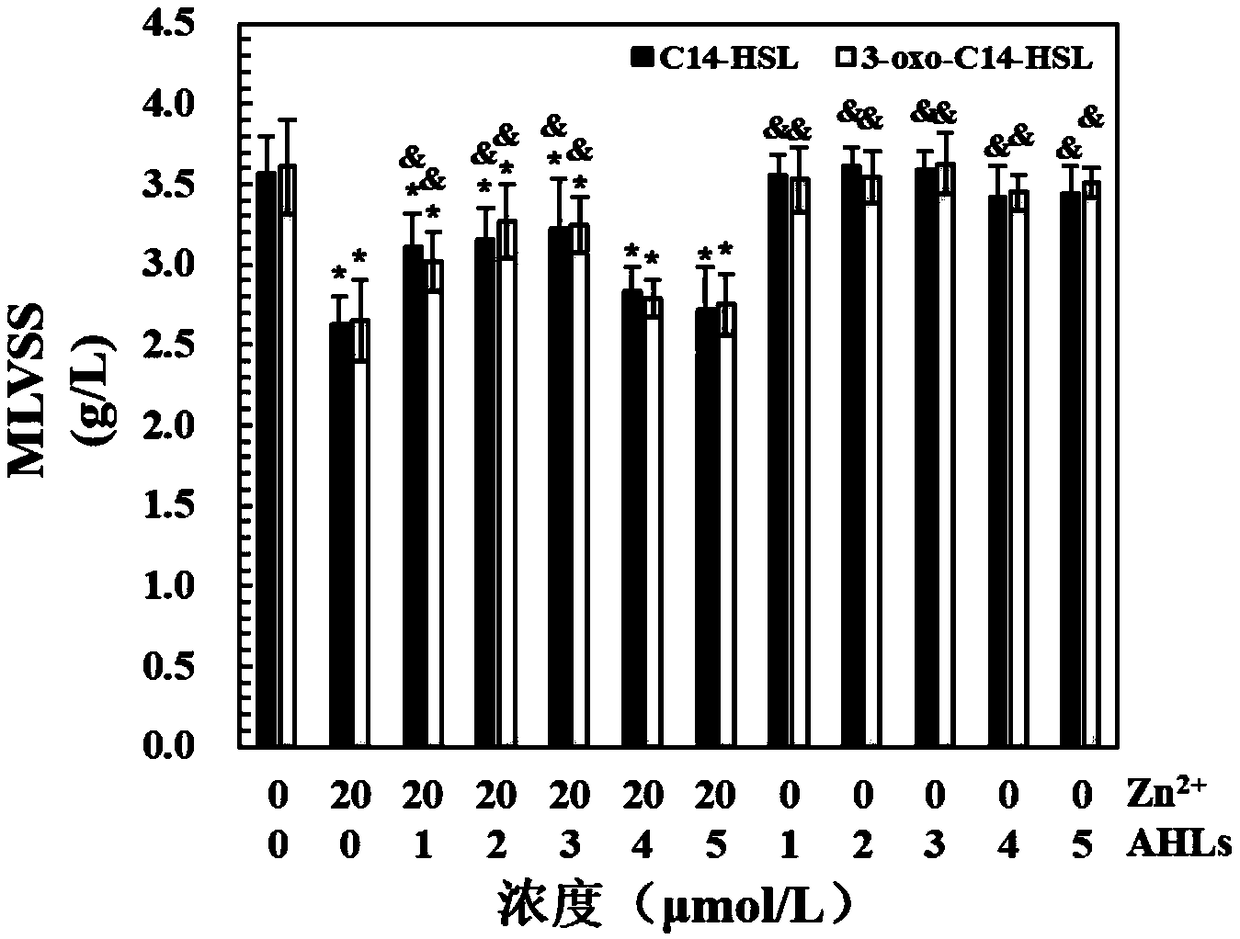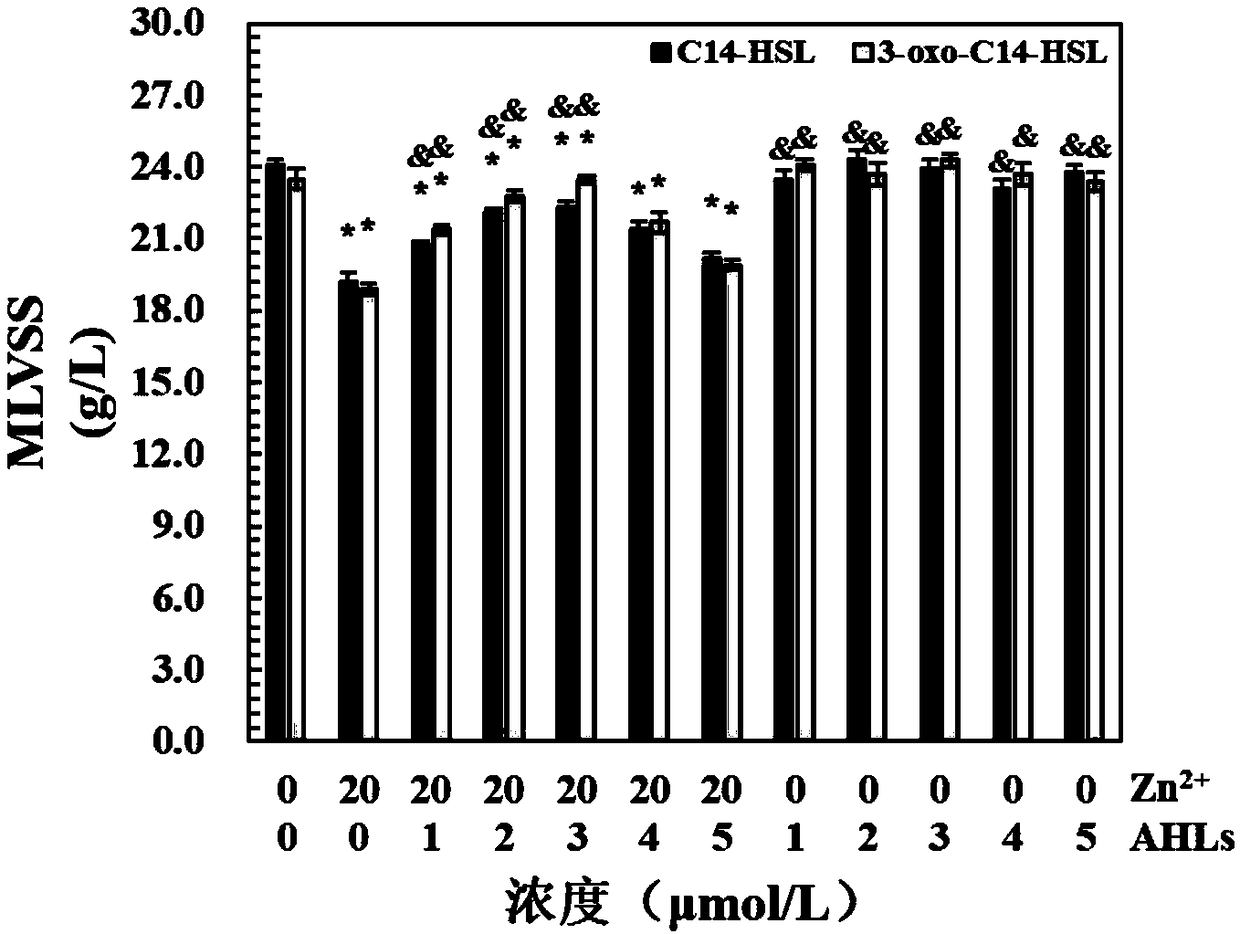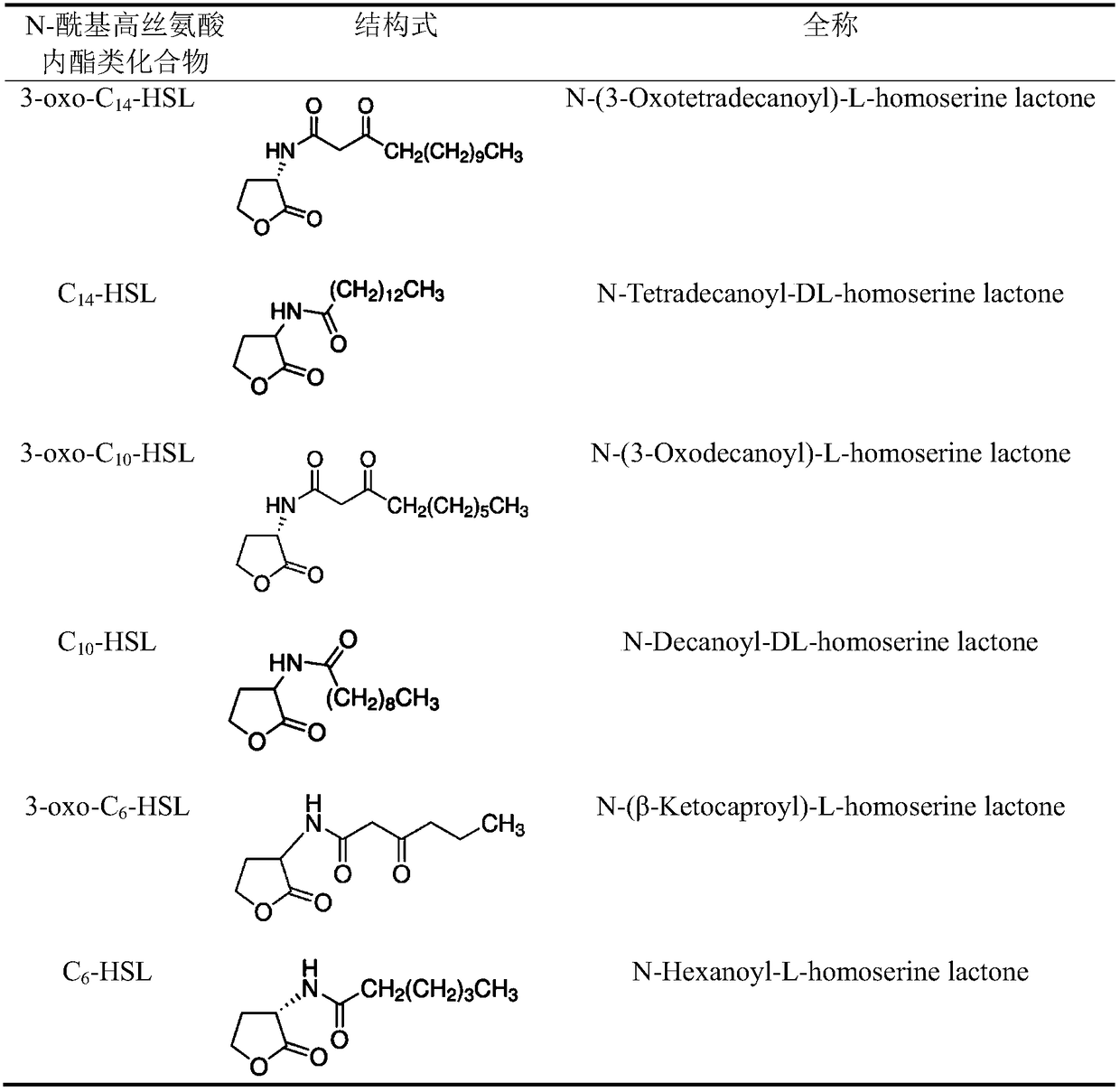Method for improving heavy metal pollution impact load resistance of biological nitrogen removal system for sewage
A sewage biological, anti-heavy metal technology, applied in water pollutants, chemical instruments and methods, biological water/sewage treatment, etc., can solve the problems of reduced total nitrogen removal efficiency, concentration and specific gravity, etc. Simple, Enhanced Ability Effects
- Summary
- Abstract
- Description
- Claims
- Application Information
AI Technical Summary
Problems solved by technology
Method used
Image
Examples
Embodiment 1
[0023] Take activated sludge from the aeration tank of a municipal sewage treatment plant, and configure artificial simulated wastewater: take 6.5gCH 3 COONa, 1.2 g NaHCO 3 , 2.3g NH 4 Cl, 0.11g KH 2 PO 4 , 0.14g K 2 HPO 4 , 2mL trace element solution (ZnSO 4 ·7H 2 O 0.6g, MnCl 2 · 4 h 2 O 0.6g, NaMoO 4 · 2 h 2 O 0.3g, CuSO 4 · 5 h 2 O 0.15g, KI 0.15g, H 3 BO 3 0.75g, CoCl 2 · 6 h 2 O 0.75g, FeCl 3 · 6 h 2 O 7.5g dissolved in 1L ultrapure water), 2mL CaCl 2 ·H 2 O solution, 2mL MgSO 4 ·7H 2 O solution is placed in a culture tank with an effective volume of 10L, and the artificially simulated wastewater quality conditions are: COD=500±3mg / L, SOP=5.0±0.3mg / L, NH 4 + -N=60±2mg / L, NO 2 - -N=1.5±0.2mg / L, NO 3 - -N=4.2±0.6 mg / L, pH=7.0±0.5. The activated sludge was inoculated into the artificial simulated wastewater, and after 5 months of domestication in the laboratory until the effluent index was stable, it was injected into the SBR reactor with an...
Embodiment 2
[0030] Take activated sludge from the aeration tank of a municipal sewage treatment plant, and configure artificial simulated wastewater: take 6.5gCH 3 COONa, 1.2 g NaHCO 3 , 2.3g NH 4 Cl, 0.11g KH 2 PO 4 , 0.14g K 2 HPO 4 , 2mL trace element solution (ZnSO 4 · 7 h 2 O 0.6g, MnCl 2 · 4 h 2 O 0.6g, NaMoO 4 · 2 h 2 O 0.3g, CuSO 4 · 5 h 2 O 0.15g, KI 0.15g, H 3 BO 3 0.75g, CoCl 2 · 6 h 2 O0.75g, FeCl 3 · 6 h 2 O 7.5g dissolved in 1L ultrapure water), 2mL CaCl 2 ·H 2 O solution, 2mL MgSO 4 ·7H 2 O solution is placed in a culture tank with an effective volume of 10L, and the artificially simulated wastewater quality conditions are: COD=500±3mg / L, SOP=5.0±0.3mg / L, NH 4 + -N=60±2mg / L, NO 2 - -N=1.5±0.2mg / L, NO 3 - -N=4.2±0.6 mg / L, pH=7.0±0.5. The activated sludge was inoculated into the artificial simulated wastewater, and after 5 months of domestication in the laboratory until the effluent index was stable, it was injected into the SBR reactor with ...
Embodiment 3
[0035] Take activated sludge from the aeration tank of a municipal sewage treatment plant, and configure artificial simulated wastewater: take 6.5gCH 3 COONa, 1.2 g NaHCO 3 , 2.3g NH 4 Cl, 0.11g KH 2 PO 4 , 0.14g K 2 HPO 4 , 2mL trace element solution, 2mL CaCl 2 ·H 2 O solution, 2 mL MgSO 4 ·7H 2 O solution is placed in a culture tank with an effective volume of 10L, and the artificially simulated wastewater quality conditions are: COD=500±3mg / L, SOP=5.0±0.3mg / L, NH 4 + -N=60±2mg / L, NO 2 - -N=1.5±0.2mg / L, NO 3 - -N=4.2±0.6 mg / L, pH=7.0±0.5. The activated sludge was inoculated into the artificial simulated wastewater, and after 5 months of domestication in the laboratory until the effluent index was stable, it was injected into the SBR reactor with an effective volume of 1.5L (reaction cycle total 8h: water inflow 10min; anoxic 120min; aerobic 240min) ; Precipitation 40min; Outflow 10min; Idle 60min) adding final concentration of 25mg / L ZnSO 4 and 1mg / L CuSO 4...
PUM
 Login to View More
Login to View More Abstract
Description
Claims
Application Information
 Login to View More
Login to View More - R&D Engineer
- R&D Manager
- IP Professional
- Industry Leading Data Capabilities
- Powerful AI technology
- Patent DNA Extraction
Browse by: Latest US Patents, China's latest patents, Technical Efficacy Thesaurus, Application Domain, Technology Topic, Popular Technical Reports.
© 2024 PatSnap. All rights reserved.Legal|Privacy policy|Modern Slavery Act Transparency Statement|Sitemap|About US| Contact US: help@patsnap.com










